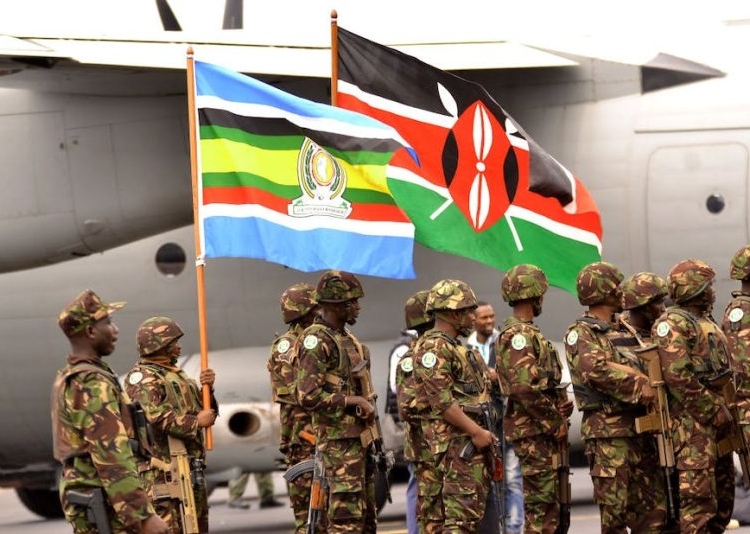The East African Community (EAC) peacekeeping force will end its mission in eastern Democratic Republic of Congo (DRC) after December 8, according to a statement issued by the regional bloc’s heads of state. The EAC Regional Force (EACRF) has been deployed in the conflict-ridden region since 2022, but has failed to bring lasting stability and security to the area. The EAC leaders said they will hand over the responsibility to the Southern African Development Community (SADC) forces, but will remain engaged in the peace process.
The EACRF was established as part of the Nairobi Agreement, a peace deal brokered by Kenya’s former President Uhuru Kenyatta in 2022, which aimed to end the hostilities between the DRC government and various rebel groups operating in the eastern provinces. The EACRF consisted of troops from Burundi, Kenya, Rwanda, South Sudan, Tanzania and Uganda, and was mandated to support the DRC army in restoring state authority, protecting civilians and facilitating humanitarian access.
However, the EACRF faced several challenges and criticisms during its operation, including accusations of human rights violations, lack of coordination with the UN peacekeeping mission (MONUSCO), and interference from some EAC member states in the internal affairs of the DRC. The EACRF also failed to prevent the resurgence of violence in October 2023, when the ceasefire between the DRC government and the rebel coalition known as the Coalition of Patriots for Change (CPC) collapsed. The CPC, which includes several armed groups such as the Democratic Forces for the Liberation of Rwanda (FDLR), the Allied Democratic Forces (ADF) and the Mai-Mai militias, accused the DRC government of reneging on its commitments under the Nairobi Agreement, and launched a new offensive to capture strategic towns and mineral-rich areas.
The renewed fighting has caused a humanitarian crisis in the region, with thousands of people displaced and in need of assistance. The EACRF has also faced protests from the local population, who demanded its withdrawal and accused it of siding with the DRC government. The DRC President Felix Tshisekedi, who has been seeking to assert his authority and legitimacy since taking office in 2019, has also expressed his dissatisfaction with the EACRF and its role in the region. He has accused some EAC countries, especially Rwanda, of supporting the rebels and undermining his sovereignty. He has also sought to strengthen his ties with SADC, which includes his allies such as Angola, Zambia and Zimbabwe.
The EAC heads of state, who met in Arusha, Tanzania, on Friday, acknowledged the difficulties and limitations of the EACRF, and agreed to respect the decision of the DRC government not to extend its mandate beyond December 8. They also commended the EACRF for its efforts and achievements in the region, and expressed their gratitude to the troop-contributing countries and the international partners for their support. They said they will remain committed to the peace and stability of the region, and will continue to work with the DRC government and other stakeholders to find a lasting solution to the conflict.
The EAC leaders also instructed their chiefs of defence forces to meet with their counterparts from SADC before December 8, and to submit their recommendations on the way forward to the defence ministers for onwards transmission to the summit for consideration. The EAC secretary general, Peter Mathuki, said the summit agreed that the meeting will facilitate a smooth transition and coordination between the EACRF and the SADC forces, and will also explore the possibility of a joint mechanism to address the security challenges in the region.







